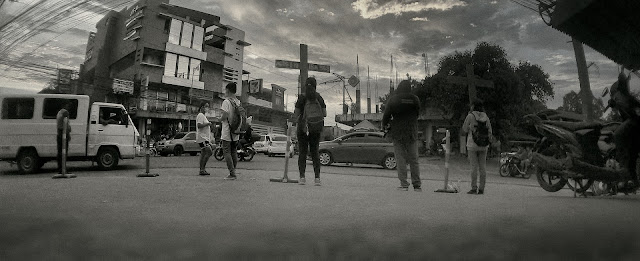What Is To Come
By all accounts he was rarely gifted, and carried a brilliant intellect yielded to Christ. He had his own rustic school of theology, and his classes were attended by youths from miles around. Three of these class members sealed their testimonies with their blood, and their leader had oftentimes to flee. An impediment in his speech had made him give up the thought of being a Covenanting minister, but here was his own Bible School where he taught youth to resist unto blood, striving against sin.
In the summer time they held their classes in the sheepfold, and in the winter they sat around the peat fire in the kitchen. We rightly look upon John Brown of Priesthill as being one of our first founders of Bible Classes and Sunday Schools. Who would not like to see the Bible School at Priesthill with John Brown in his class of peasant students, candidates for martyrdom?
The year 1685 was a terrible year in a terrible era. The Killing Time reeked reddest then. The author of Robinson Crusoe, Daniel Defoe, one of the most painstaking and sympathetic writers on the Covenanters, 'fixes on the barbarities of this year to support his opinion that the Scottish persecution was worse than that of the Roman Emperors and Popish Inquisitors.' Long is the roll of the names of martyrs - the lashed to the hooks, the burned by the match, the redhot iron branded, the starved to death, the bone mangled and crushed, the earclipped, the banished, the wounded and torn by bullet and knife. But as the horrors are bestial and brutal, so are the testimonies tender and spirit-quickening. The Covenanters died praying and praising. While their persecutors lived in sin, they prepared themselves for Heaven, deeming themselves blessed forever because blessed of the Lord.
Isabel Brown with her child in her arms, and another child of John Brown's first wife by her side. He came to her saying, 'Now Isabel, the day is come that I told you would come when I spoke to you first of marrying me.'
She said, 'Indeed John, I can willingly part with you.'
'That is all I desire,' he replied. 'I have no more to do but to die. I have been in happy case to meet with death for so many years.'
He kissed her and his children, saying that he wished blood-bought and gospel-promised blessings to be multiplied upon them. Claverhouse roughly broke in, ordering six dragoons to shoot him.
As he stood before them, their hearts were moved; they lowered their muskets and refused to fire. But the killer of many unbelted his pistol, and hastily walking up to John Brown, pointed it to his head, and blew his brains out, scattering them upon the ground.
Looking at his ghastly work with a sardonic smile, he turned to Isabel saying, 'What do you think of your fine husband now?', and through her tears she bravely answered, 'I ever thought much good of him, and more than ever now.'
'It were but justice to lay you beside him,' he returned.
Said she, 'If you were permitted, I doubt not but your cruelty would go that length. But then how will ye answer to God for this morning's work?'
Arrogantly, he blustered, 'To man I can be answerable. And as for God, I shall take Him into my own hand!' He then mounted his horse and haughtily rode off at the head of his troops. He later confessed that if he gave himself liberty to think of it, he could never forget John Brown's prayer.
Isabel Brown set her child upon the ground, gathered up her husband's brains, tied up his head, straightened his body, and covering it with a plaid, sat down and wept.
________________________
A brief excerpt of the life and martyrdom of John Brown. Covenanter. From the book Fairsunshine, by Jock Purves. Banner of Truth





Comments
Post a Comment